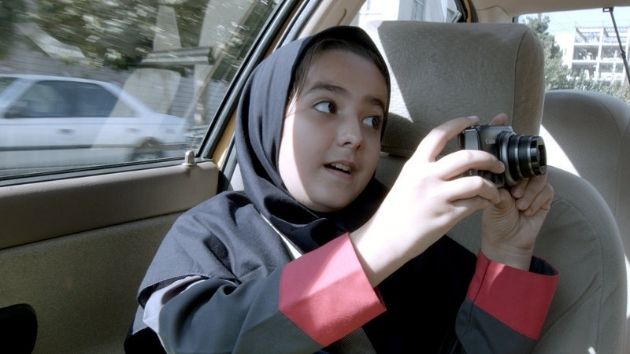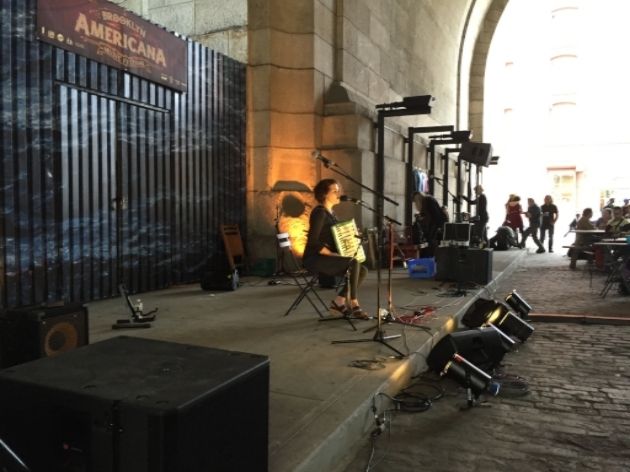
Jafar Panahi was jailed, then put on house arrest and banned from filmmaking for 20 years by the Iranian government in 2010 when it deemed the award winning filmmaker an anti-government propagandist. This didn't stop the filmmaker from making films though.
At first, Panahi was creatively bending the absurd rules that were put on him by making unscripted films in his house with with a small video cameras and smart phones. His frustration and ingenuity were in full display in This is Not a Film and Closed Curtain. With Taxi, his latest, the Golden Bear winner at this year's Berlinale, Panahi raises his middle finger again. The film is yet another self-reflexive, droll, poignant whatsit and defies the powers that be.
In Taxi, very much in the tradition of the fellow Iranian great Abbas Kiarostami, Panahi uses the confines of a moving car to unfold the snapshot of Tehran and its inhabitants in real time. Things are little more sophisticated this time around. There are multiple angle shots, edits and the line between fiction and reality are blurrier than the previous two films.
Panahi himself sets out as a taxicab driver, picking up passengers and their interactions are all captured by small dashboard cameras. The passengers are as diverse as they get. Some get into a heated political discussion - the harshness of the Sharia Law. Ironically the one who advocates the capital punishment turns out to be a criminal.
A motorcycle accident on the street brings in a couple, an wounded man and his hysterical wife. On the way to a hospital, the bloody man orders Panahi to record his last will with his cell phone. He wants to leave all his assets to his wife. Panahi knows that his injuries are minor and will be OK. But after he drops the couple off at the hospital, he promises the wailing wife that he will make sure that she will get the footage.
Then there is an illegal DVD seller who recognizes the famed director. He is the reason how Panahi got to watch films like Once Upon a Time in Anatolia and Midnight in Paris in Iran where most of foreign movies are banned.
There are deeply superstitious old ladies who wants to go to Ali Spring to release a couple of goldfishes. They think their lives depend on the fishes being free. The hilarity ensues after the ladies break the fishbowl in the cab, due to Panahi's bad driving.
But it's Panahi's own niece Hana (Hana Saeidi), a precocious, button nosed young schoolgirl who steals the show. Armed with her tiny digital camera, she wants to make a 'distributable' film. The guideline to make a distributable film that her film teacher told her reveals a lot about the country still steeped in religious fundamentalism - respect the Islamic headscarf, no touching between opposite sex, no political discussion, voluntary self censorship ("deep down, you know what's best"), no sordid realism. After giving Panahi's human rights lawyer friend a ride to the jail where she is trying to visit a woman who is on hunger strike after getting arrested for attending a volleyball game (along with other women), bright eyed Hana asks her uncle what sordid realism means: "We are all real. And that means what we see is all truth." To this, Panahi replies, "There are some truth they don't want you to see."
I used to think that Panahi's more politically active approach in filmmaking is less elegant in portraying human conditions. With Taxi, it's either me warming up to his filmmaking or he is getting better and wiser as a filmmaker, even with much less resources and more restrictions.
The film shows regular Iranian's resilience. Many recognizes his dashboard cam and understands that Panahi is making yet another film. No one in the film hides his/her face or runs away screaming. Whatever the conditions your government put you under, the life still goes on. And the filmmaker has enough of a common sense not to put up the credits at the end of the film.
The film ends with a plain clothes government officials trying to steal the memory card from his dashboard camera while Panahi is out to deliver a purse that was left in the cab by one of the old ladies.
Deeply poignant in its simplicity and undeniably human, Taxi is one of the best non-political, political films I've ever seen.
Taxi will have its New York Premiere at BAM Cinematek on 9/29 and opens nationwide Oct. 2nd.
